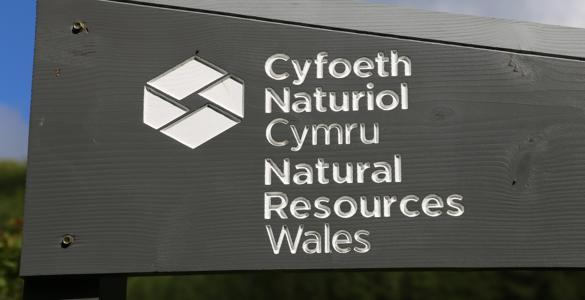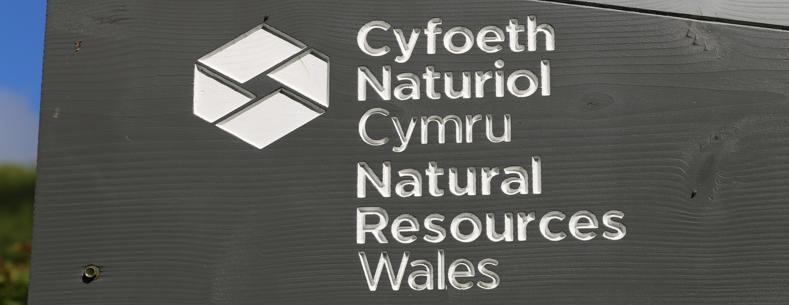Natural Resources Wales (NRW) is the largest Welsh Government Sponsored Body - employing nearly 2,000 staff and with a total budget of around £180 million. Yet in its first annual scrutiny of the body, the Senedd’s Climate Change, Environment and Infrastructure Committee found there is a lack of capacity, delays in planning and operational matters and also “some controversy”.
The Committee intends to undertake periodic scrutiny of Natural Resources Wales (NRW) during the Sixth Senedd and published its first Annual Report about NRW on 23 March 2022. It makes recommendations to the Welsh Government and NRW and suggests there is a ‘much-needed opportunity for a “reset” of the funding arrangements for NRW.
This article looks in more detail at the Committee’s findings and how the Welsh Government has responded. NRW itself is yet to respond, but is expected to do so before September.
A journey fraught with difficulty
The Welsh Government created NRW in 2013, merging three existing bodies: the Countryside Council for Wales, Environment Agency Wales, and Forestry Commission Wales. – as well as incorporating some existing Welsh Government responsibilities. Its role is wide ranging, encompassing advice, regulatory, designatory and management functions across Wales.
However the Committee described NRW as being in a “constant state of flux since its creation” with “widespread concern among stakeholders” regarding:
… its ability to monitor and enforce environmental protection laws; respond to incidents of environmental pollution and flooding; monitor and assess the condition of terrestrial and marine sites; and support land use and marine planning.
During scrutiny of the draft budget, the Minister for Climate Change told the Committee the ongoing question of whether NRW is able to effectively exercise its duties and responsibilities would be addressed through a fundamental baseline review. Its key purpose is to look at the allocation of NRW resources against its statutory functions and Programme for Government commitments. The Minister expects the review will conclude before April 2023.
NRW told the Committee that updates to its corporate and business plans, and its remit letter, have been delayed due to this baseline review. Yet despite these knock-on delays, the Committee concluded the review is much needed, and “may provide an opportunity to put an end to this chaotic period”.
Clare Pillman, NRW Chief Executive, also told the Committee that a “term of Government remit letter” was expected imminently and would set an overarching framework for NRW’s work, supplemented by more detailed annual remit letters. The full term of Government remit letter would sit alongside NRW’s budget and be informed by the “baseline review, Programme for Government, Co-operation agreement, all those things coming together.” However no remit letters have been published since the Committee took evidence.
Do NRW’s funding arrangements need to change?
NRW receives core funding for its baseline functions, and additional grant funding for projects outside those functions e.g. £1.5m to deliver the National Peatland Action Programme.
However, the Committee found, that since its creation:
NRW’s budget had been reduced by over a third. As its budget has reduced year on year, the Welsh Government has piled additional responsibilities and duties upon it.
NRWs core funding has not increased in recent years despite its responsibilities increasing. The Minister told the Committee the baseline review will address any “mission creep”, and will outline what NRW is expected to do with its baseline budget, and what should be an additional funding arrangement.
NRW also earns income through commercial activities, such as managing renewable energy and timber on the Welsh Government estate, and regulatory charges. NRW says charge income is “relatively stable”, but commercial income is “less predictable as it’s very sensitive to exchange rate changes which affect timber prices”. NRW’s timber activities have also been the subject of controversy with its handling of past timber contracts found to have “serious failings”.
The review will consider whether this approach is appropriate way to fund a public sector organisation, particularly as NRW must absorb any risks arising from market fluctuations. One option under consideration is whether it should be the Welsh Government, rather than NRW, which absorbs both the benefits and risks of a commercial approach. The Committee called for NRW’s funding to be commensurate with its roles and responsibilities, and expects to see an increase in funding following the review.
Staffing levels and NRW’s capacity questioned
The Minister confirmed the review will also consider NRW’s staffing - both whether it has enough staff, and whether they’re in the right place to be able to effectively and efficiently deliver its responsibilities.
Concerns over NRW’s staffing capacity have been rising. NRW told the Senedd’s Economy, Trade and Rural Affairs Committee that enforcing the recent agricultural pollution regulations would be a “massive workload”. It estimated it needs 60 extra staff to deliver the “minimum viable product” but “well over 200” to deliver the “full role”.
Similarly, NRW’s review of flooding in February 2020 found it will require approximately 60 to 70 additional staff to ensure long term, sustainable improvements in flood management services.
The Climate Change, Environment and Infrastructure Committee questioned NRW about the July 2020 pollution incident on the River Llynfi which killed 45,000 fish, and other river life. NRW was criticised for a 13-hour delay in attending the incident which was said to have occurred due to officers attending other high priority pollution incidents. There were difficulties in identifying the source of pollution given the time delay and an investigation found there was no ‘realistic prospect of conviction’.
NRW told the Committee it was considering contract changes to increase the pool of people available for such incidents. However given NRW has already made recent staffing changes. the Committee was concerned that a further cycle of staffing reviews may be harmful to staff morale.
Scrutiny of new NRW planning advice
In January 2021, NRW reported that of the nine Special Area Conservation (SAC) rivers in Wales, 61% of waterbodies, had failed to meet new tightened phosphorous targets. NRW went on to update its advice to planning authorities, leading to much debate and media reports that it had brought planning applications to a ‘standstill’, due to the new requirement for developments to be phosphate-neutral.
The Minister said that 'the adoption of tighter phosphorus targets within SACs by NRW was a response to scientific evidence and advice by the Joint Nature Conservation Committee’. But Laura Anne Jones MS described it as “regulation through the back door” and Mabon ap Gwynfor MS said that while NRW had identified a problem it had failed “to collaborate with stakeholders”.
In the scrutiny session, NRW assured the Committee that meaningful consultation is taking place with stakeholders. It said that a SAC rivers project has been established, and that local planning authorities have been asked to report on the extent phosphate considerations are affecting planning. More recently, the Minister announced a ‘phosphate summit’ will be held at this year’s Royal Welsh Show, chaired by the First Minister.
Getting on with the job
Next year will be 10 years since NRW was created, when three distinct organisations were brought together. The Committee notes the “considerable difficulty and some controversy” that the organisation has faced since, but is hopeful that:
The baseline review should lead to a clearer picture of the duties and responsibilities the Welsh Government wishes NRW to exercise, and the funding required to do so effectively.
The Committee’s report will be debated in the Senedd on 22 June. You can watch it live on Senedd TV.
Article by Lorna Scurlock, Senedd Research, Welsh Parliament






